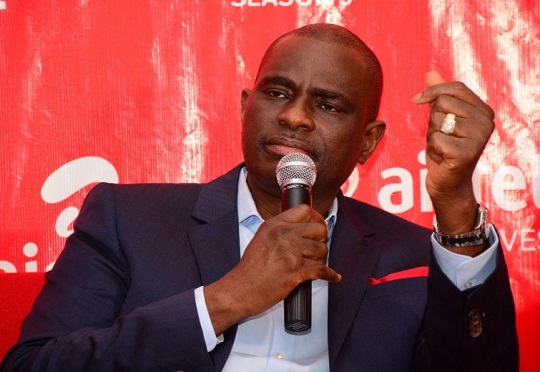Can Airtel Africa avoid another loss in Q2, even as the lingering currency exchange challenges that led to the loss in Q1 continue to worsen?
In Q1, Airtel Africa reported a loss after tax of $151 million due to a foreign exchange loss of $471 million in finance costs. The after-tax impact of this amounted to $317 million.
The devaluation of the Nigerian naira had an adverse impact because it increased the company’s cost of servicing debt and conducting financial transactions in a foreign currency.
The impact of the exchange rate fluctuations is also reflected in the company’s revenue growth. While the company’s revenue in constant currency grew by 20.4%, the reported currency revenues increased by 9.6% to $1,377 million.
The difference between the constant currency growth rate (20.4%) and the reported currency revenue growth rate (9.6%) underscores the effects of changes in exchange rates between the company’s functional currency and the currencies used in the regions where it operates.
From June to September, the average exchange rate surged by about 20%, from an average rate of N634.56/$1 in June to N761.33/$1 in September.
This trend has continued, with the exchange rate climbing even further, reaching N835.08/$ as of October 20, 2023.
The unification of the exchange rate into a single window on June 14, 2023, had a pronounced impact on the foreign exchange market in Nigeria.
The exchange rate increased significantly, from an official rate of about N462/$ in 2022 to N765/$ as of June 2023.
This sudden and substantial depreciation of the local currency has adversely affected many companies operating in Nigeria.
As we anticipate the upcoming Q2 results of the company, there is a prevailing expectation that the company may not be able to avoid another loss after tax in Q2.
This is due to a significant 20% increase in the exchange rate during the mentioned period.
In its Q1 results press release, the company expressed the hope that exchange rate fluctuations would subside in the near future. However, this hope has not materialized.
The company also indicated that if the Group’s results had been consolidated using the closing exchange rate of N752/$1 for the three months ending June 2023, the reported revenues would have seen a 4.4% decrease to $1.2 billion (instead of the reported 9.6% growth).
Similarly, reported EBITDA would have declined by 3.5% to $592 million (as opposed to the reported 11.1% growth).
It’s worth noting that the minimal impact recorded was a result of the weighted average NGN/USD exchange rate used for consolidating these results, which stood at N503/$1, while the closing rate was N752/$1.
Also, the company had originally anticipated that, in the absence of any further devaluations for the remainder of the year, the annualized impact of the devaluation in Nigeria that took place in June 2023 would be in the range of $850 million to $900 million in terms of annualized revenues and between $450 million to $500 million in terms of annualized EBITDA.
However, the ongoing devaluation appears to have altered this outlook significantly, including the balance liabilities and derivatives, though already revalued at the closing rate of 752 NGN/USD.
This is foreseen to result in an escalation of finance costs and an exacerbation of the company’s leverage. The leverage ratio stood at 1.3x in June, and it is expected to rise further.
During the Q1 2024 results conference call, responding to the anticipated impact of the naira devaluation, the company’s CFO, Jaideep Paul, projected that if the exchange rates for Nigeria were ₦752, the year-end leverage is expected to fall within the range of 1.4x to 1.5x. In essence, it will not remain at 1.3x; and with the current trend, it is likely to exceed the outlook of 1.4x or 1.5x
This is poised to affect earnings and may potentially result in another after-tax loss in Q2 unless the company’s top-line revenue experiences significant growth to counterbalance the anticipated rise in finance costs due to the increasingly challenging exchange rates.
Such an impact may also extend to the company’s Earnings Per Share (EPS) and overall valuation. In Q1, the Basic Earnings Per Share (EPS) stood at -4.5 cents, contrasting with the positive figure of 4.4 cents in the previous period.
However, the company remains determined and focused on its strategic objectives.
The CEO, Olusegun Ogunsanya, conveyed a sense of confidence and determination during the Q1 results conference call.
He underlined the company’s unwavering commitment to growth and profitability, even in the face of the one-off devaluation’s impact.
The CEO emphasized their goal of maintaining a double-digit growth rate, aiming for a range of 20% to 25%, by focusing on expanding the top line, network footprint, cost control, and achieving profitability, all of which are key catalysts for maintaining relevance in their largest market.












